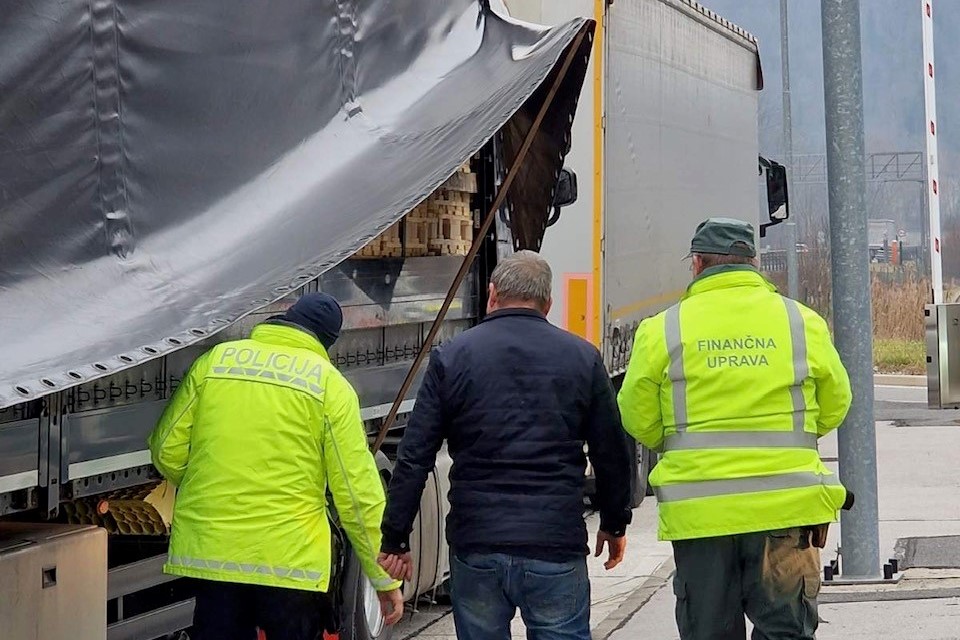To enhance road safety and ensure compliance with labour legislation, two intensified traffic checks on heavy goods vehicles (HGVs) were carried out on 10 February, jointly conducted by the Police, the Labour Inspectorate, the Infrastructure Inspectorate, and the Financial Administration. The results of the operation are outlined below.

A total of 96 HGVs from both domestic and foreign operators, along with 16 buses from domestic and foreign operators, were stopped and subjected to traffic enforcement checks.
The findings revealed that HGV drivers, particularly those operating vehicles with trailers or semi-trailers, frequently exceeded the motorway speed limit of 80 km/h. Many were recorded driving at speeds of up to 90 km/h, limited only by built-in speed limiters, which can sometimes be tampered with. Additionally, some drivers exceeded speed limits even further when driving down steep gradients.
During the operation, three vehicles were taken off the road due to severely worn or damaged tires. Police officers also detected overloaded vehicles and those with technical defects, such as faulty braking systems, which pose a significant safety risk. Two vehicles with defective brakes were removed from traffic. In one case, officers ordered an extraordinary technical inspection of a vehicle found to be in exceptionally poor condition. The inspection, conducted by an authorized technical inspection operator, uncovered multiple serious defects.
Numerous drivers were found to have violated rules on permitted driving hours, mandatory breaks during driving and working hours, and prescribed daily and weekly rest periods.
During the checks, police officers also stopped a driver from a domestic transport operator who tested positive for cannabis in a roadside drug test. A medical examination was conducted to verify the results of the rapid test through a toxicological analysis carried out at the Institute of Forensic Medicine in Ljubljana.
Another driver was found driving with a tachograph card that did not belong to him. This deceptive practice allows the driver to exceed legally permitted driving and working hours, compromising their concentration and increasing fatigue—both of which pose a serious risk to the driver and other road users. Additionally, this type of misconduct by the driver, and especially the transport operator, contributes to unfair competition within the industry. The checks once again confirmed that bus drivers—especially on long-distance international routes—frequently manipulate their working hours. A common practice involves multiple drivers travelling on the bus, with some posing as passengers before taking over the wheel without proper rest. According to regulations, the maximum working time for journeys involving multiple drivers is 21 hours. However, on extended bus journeys, officers observed frequent violations and unlawful practices by drivers and operators seeking to cut costs. Such behaviour poses a serious threat to road safety and, most importantly, endangers the safety of passengers.
The two labour inspectors who participated in the operation monitored multiple drivers and announced that further inspections would be conducted at transport companies and their business premises.
Additionally, buses from domestic operators providing morning services on public passenger transport routes were also subjected to enforcement checks. The checks focused on verifying passengers' compliance with mandatory seat belt use, as indicated by pictograms and visual notices displayed on the buses. It was found that passengers generally did not wear seat belts during their bus journeys.

